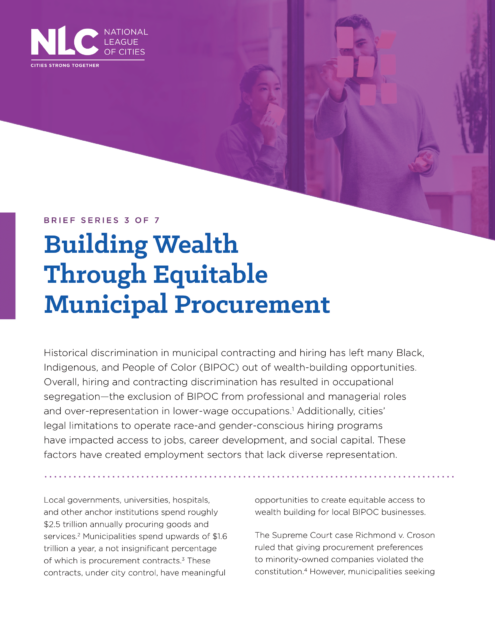Historical discrimination in municipal contracting and hiring has left many Black, Indigenous, and People of Color (BIPOC) out of wealth-building opportunities. Overall, hiring and contracting discrimination has resulted in occupational segregation—the exclusion of BIPOC from professional and managerial roles and over-representation in lower-wage occupations. Additionally, cities’ legal limitations to operate race-and gender-conscious hiring programs have impacted access to jobs, career development, and social capital. These factors have created employment sectors that lack diverse representation.
NLC created this series of resources as part of the Equitable Economic Mobility Initiative (EEMI), a two-year project intended to catalyze municipal action to expand economic mobility for residents while eliminating longstanding racial economic inequities. Through the Initiative, NLC aims to help cities recover and rebuild after the devastating impacts of the COVID-19 pandemic through strategies that support residents’ economic stability (meeting basic needs), economic security (stable employment and ability to cover expenses) and set them on a path to building wealth (ability to save for family’s future). EEMI is made possible by the generous support from the Bill & Melinda Gates Foundation.
This brief series is based on research funded by the Bill & Melinda Gates Foundation, though, the findings and conclusions contained within are those of the authors and do not necessarily reflect positions or policies of the Bill & Melinda Gates Foundation.
Learn more about taking action to expand economic mobility for your residents and visit Equitable Economic Mobility Initiative.










